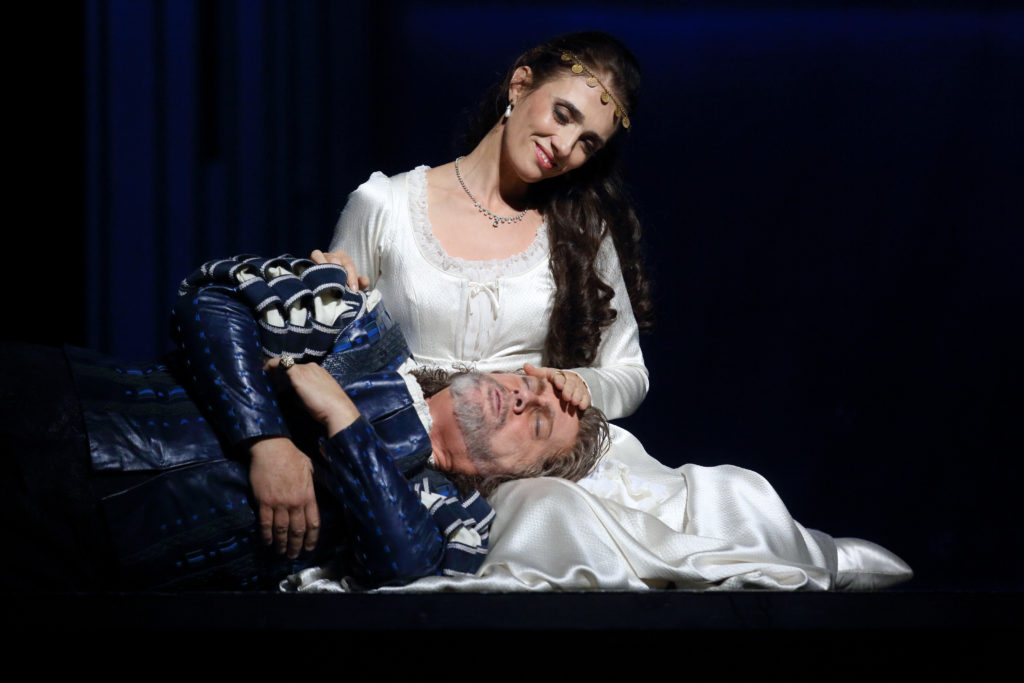
Gregory Kunde as Otello and Ermonela Jaho as Desdemona, photo by Catherine Ashmore
Moor is Less
Otello, dramma lirico in four acts, music by Giuseppe Verdi, libretto by Arrigo Boito, revival of the 2017 production directed by Keith Warner, Royal Opera House, Monday 9 December 2019, reviewed by Leslie Jones
In ‘Making Shakespeare Sing’, American composer Matthew Aucoin considers the ‘fraught alchemy’ whereby a play is turned into an opera. Some elements, as he observes, “will shrink or evaporate, others are magnified to unrecognisable dimensions”. For Aucoin, Verdi’s Otello is that “exceedingly rare breed…a masterpiece based on a masterpiece”.
When we consider Otello in conjunction with its source, “…what is gained and what is lost” becomes apparent .” (New York Review of Books, Dec 19, 2019, vol. LXVI, number 20). Although Verdi’s librettist Arrigo Boito generally kept to Shakespeare’s plot, the opera only commences when Otello arrives in Cyprus, after a storm. Act 1 of Shakespeare’s play is elided and significant contextual material concerning Venetian mores is thereby lost.
For as Felicity Rosslyn observes, “Iago’s success with Otello is startling” (‘The handkerchief!…the handkerchief’, Official Programme). Why is Otello (played by indefatigable American tenor Gregory Kunde) so readily persuaded that Desdemona (diva assoluta, Ermonela Jaho) is unfaithful, when everyone else realises that she is not? But remember that Otello, a noble Moor in the service of the Venetian state, is an outsider, struggling to comprehend an alien culture. And that Iago has convinced him that “In Venice they do let heaven see the prank they dare not show their husbands…” The omission of Shakespeare’s first act also deprives us of additional insights into what motivates Iago, notably psycho-sexual factors. He contends that “’…twixt my sheets he [Othello] has done my office”.
Director Keith Warner cleverly deploys a toy vessel to depict the struggle of Otello’s ship to make port. Iago, performed by Carlos Álvarez, who has stage presence in abundance, dons a mask at pivotal moments – a telling device for someone who systematically feigns friendship and honesty and who deems morality and religion a sham. Boris Kudlička’s pared down sets were effective and Kaspar Glarner’s costumes resplendent. Children, dressed in white, serenade Desdemona, ditto Desdemona herself in the heart rending death scene.
In a review of La Traviata, in January 2019, we commented on Ermonela Jaho’s performance as Violetta Valery, thus, “A svelte and striking figure, Ms Jaho has a commanding stage presence and looks perfect in the part”. Evidently nothing changes.
Dr Leslie Jones is Editor of Quarterly Review










